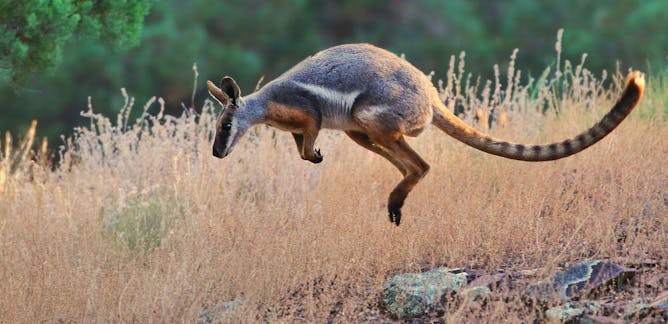|
|
|
|
Nau mai, haere mai – welcome to your newsletter.
The speed at which the coalition government is repealing existing laws, often without announcing how it plans to replace them, hasn’t slowed down following its first 100 days in office.
Environmental legislation is no exception. The government has already scrapped two laws enacted last year which were part of a three-law plan to update New Zealand’s outdated resource management system. Last week, it introduced a bill that would take precedence over several current environmental laws, and give ministers the power to fast-track approvals of infrastructure projects deemed to be of national or regional significance.
This has prompted several scientific societies to join forces in their warning that the bill’s focus on development, above environmental protection and sustainable resource use, undermines New Zealand’s obligations to safeguard the country’s unique and threatened biodiversity. They warn it will come at a cost to the natural capital that underpins the economy.
As ecologists Tim Curran and Jo Monks write, the proposed fast-tracking process leaves no time for thorough ecological surveys to assess a site’s biological diversity. It restricts consenting to just six months, which means expert panels would have to make their assessments based only on existing ecological information – known as a “desktop assessment”.
“These are not a replacement for on-the-ground surveys, particularly in New Zealand, where we have limited data on many species and for many parts of the country,” the authors write.
As always, you’ll find a lot more to read on our homepage and in this newsletter, including an article about another bill which aims to afford victims the same level of protection whether they are testifying in a family court or a
criminal court.
Many thanks for your ongoing support. Until next week, ka kite anō.
|

|
Veronika Meduna
Science, Health + Environment New Zealand Editor
|
|

Tim Curran, Lincoln University, New Zealand; Jo Monks, University of Otago
New Zealand’s plants and animals are globally unique and underpin primary production and tourism. The government’s fast-tracking proposal threatens to erode the natural capital the economy relies on.
|

Carrie Leonetti, University of Auckland, Waipapa Taumata Rau
Victims in the family court system are often forced to come face-to-face with their alleged attackers when giving evidence. A new bill aims to afford these victims more protection when testifying.
|

Alexandra Gibson, Te Herenga Waka — Victoria University of Wellington; Alex Beattie, Te Herenga Waka — Victoria University of Wellington
Responses to our qualitative survey suggested artificial intelligence was at play. The results were woeful, and researchers will need to work harder to prevent contaminated outcomes.
|

Erin Harrington, University of Canterbury
For its many strengths, the film may divide audiences with its chaotic, surreal final act.
|

Geoffrey Miller, University of Otago; Miriam Neigert, University of New England
Diplomacy and national security rely on expertise in foreign languages and cultures. Australia and New Zealand need to address the looming deficit in university foreign language courses.
|

David Menkes, University of Auckland, Waipapa Taumata Rau
Growing evidence shows industry payments to doctors play a key role in unethical pharmaceutical marketing. New Zealand’s disclosure scheme fails to capture all companies and payment types.
|

Petra Butler, University of Canterbury
Labour’s Modern Slavery Reporting Bill would require businesses to act if they suspect worker exploitation in their operations or supply chains. But will the National-led government support it?
|

Chris Wilson, University of Auckland, Waipapa Taumata Rau; Ethan Renner, University of Auckland, Waipapa Taumata Rau; Jack Smylie, University of Auckland, Waipapa Taumata Rau; Michal Dziwulski, University of Auckland, Waipapa Taumata Rau
New research mapping the online and real-world activity of the Christchurch attacker provides insights into his radicalisation and the ways others contemplating terrorist violence might act.
|

Jedrzej Bialkowski, University of Canterbury; Moritz Wagner, University of Canterbury
A new index gives us insight into how sentiment impacts investor behaviour in New Zealand. How investors feel about the market does not always match the mounting global and local uncertainties.
|
From our foreign editions
|

John Blaxland, Australian National University
Amid reports of a dip in US production of nuclear submarines and concerns about the future of the agreement under Donald Trump, some have questioned the viability of AUKUS. But they need not worry.
| |

Albert Van Dijk, Australian National University; Shoshana Rapley, Australian National University; Tayla Lawrie, The University of Queensland
Conditions deteriorated in 2023 but were stlil relatively good for ecosystems and agriculture. Unfortunately, the alarming decline of threatened species continued.
|

Dan Baumgardt, University of Bristol
Many diseases can alter the quality and appearance of your hair.
| |

Caroline Leicht, University of Southampton
There are more college-educated people living in the US suburbs than there used to be, and this may be an important factor in how the vote splits.
|

Devin Griffiths, USC Dornsife College of Letters, Arts and Sciences
When Frank Herbert sat down in 1963 to start writing ‘Dune,’ he wasn’t thinking about how to leave Earth behind. He was thinking about how to save it.
| |

Audra Diptée, Carleton University
Operation Legacy highlights the repercussions faced when people with power determine what information is available to interpret events of the past.
|

Robert Huish, Dalhousie University
Russia has tied its currency to gold to evade sanctions. Shifting the ruble away from a pegged value and into the gold standard itself is aimed at making it a credible gold substitute at a fixed rate.
| |

Shaomin Li, Old Dominion University
In China, ‘private’ businesses aren’t entirely private and the ultimate boss is the CCP, not the CEO.
|
|
|
| |
| |
| |

|
| |
| |
| |
| |
| |
| |
|
|
|
|
|
|
|